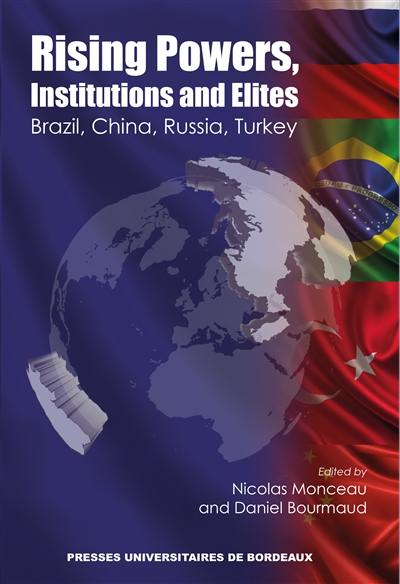
Fiche technique
Format : Broché sous jaquette
Nb de pages : 202 pages
Poids : 388 g
Dimensions : 16cm X 24cm
ISBN : 979-10-300-0280-5
EAN : 9791030002805
Rising powers, institutions and elites
Brazil, China, Russia, Turkey
Quatrième de couverture
Emerging countries have increasingly acquired a crucial importance in the international area over the last few decades. Their growing influence in the international system and their roles as rising powers in the political, economic and military spheres have been largely analysed and have raised intense debates. However, the relations between their emergence as new dominant powers at an international level and their political evolution at a national level have been less studied. To what extent are the political institutions and the elites of rising powers different from those of western countries ? At an international level do their trajectories have any influence on the evolution of their political and institutional characteristics ? What is the impact of such rising nations on the organization of internal power structures and the functioning of their national institutions ? These are some of the questions raised in this book.
The chapters in this book aim at assessing the links between the international and national dimensions with a pluridisciplinary approach. Focusing on four rising powers (Brazil, China, Russia and Turkey), a large diversity of themes are emphasized including the organisation of institutions, the nature and development of regimes, the political legitimacy of institutions for citizens, the different territorial levels for the organisation of power, ideological debates about the founding principles of regimes as well as the role and the place of elites, and also their ideologies and their transformations and the policies that they implement. The originality of this book relies on the analysis of the rising powers from the inside, with most of the contributions by scholars coming from the very countries under study.





